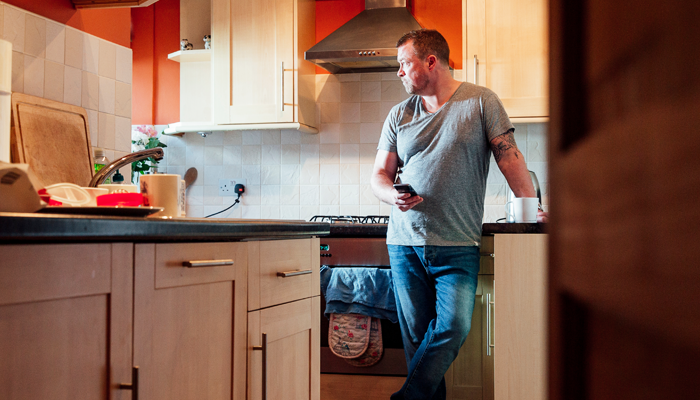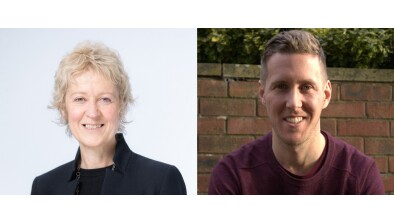Black’s Blog: Space, time, empathy, and practical stuff saves cash

Jimmy Black reflects on a conversation with Helen Murdoch from the Salvation Army and Janet Haugh from Right There.
Writing about housing is good, it’s a privilege, I enjoy it. But I used to actually do things. At various points in my life I’ve tried to give practical help and advice to people in some kind of housing crisis. That could involve shoving a cooker into the office car and delivering it to a completely bare flat, let by an uncaring council to a suddenly homeless family. More often it was sorting out housing benefit, or trying to get a single payment from the social to buy someone a bed.
But the service provided by the various advice agencies where I worked was limited. We didn’t do emotional support, or actually house people. That was someone else’s job. So let’s meet Janet Haugh and Helen Murdoch, whose agencies try to serve people in a more holistic way.
On the latest Scottish Housing News podcast, Janet and Helen speak about their agencies’ approach to preventing homelessness, providing housing, dealing with drug addiction, supporting people out of prison. They don’t divide people up into problems, and they don’t define people by their homelessness, drug addiction or whatever. They try to help people find what they need; space and time to deal with whatever issue they face, empathy and support, and practical things like flats, jobs and healthcare.
Janet is from Right There, which as you can guess aims to be ‘right there’ for the people they serve. Helen Murdoch is from the Salvation Army, whose ethos is evangelical but whose services range widely from Housing First to supporting people experiencing modern slavery.
Right There and the Salvation Army are charities who provide services under contract to local authorities. Yes, it’s good that they help people overcome really difficult circumstances in their lives. But what about the money? Charities will often argue that the work they do saves money for the public purse. It’s a hard thing to prove, but Right There and the Salvation Army have found their own ways.
I won’t even begin to describe the complex formula that Right There uses to put a figure on the financial impact of their work, but you can read about that in their report, “The Difference That Right There Makes: Social Return on Investment Approach Impact Evaluation”, an approach informed by the Sonnet consultancy. They concluded that Right There has an Impact Value of £81,000 per household supported, adding up to £308 million over a year, working with 3,802 households.
The Salvation Army argue that Housing First creates significant savings. Helen Murdoch puts it like this in the podcast, “We look at how often some people presented at A&E prior to accessing the service, how often they’ve spent the night in a prison cell. So every appointment missed is a charge to NHS, every day spent in A &E, every unscheduled visit, every night in a prison cell. And our research has shown that Housing First has got significant impact.”
However much money charities save the public purse, getting your hands on it to reinvest in housing or supported accommodation or care is going to be difficult. Extracting the cash saved from the prison service, the health board or the Health and Social Care Partnership is unlikely, give the pressures they all face.
The Salvation Army has released a report called “Breaking the Cycle” and found support in all parties and amongst other agencies for its conclusions. There are seven recommendations which Helen Murdoch describes on the podcast.
One which catches the eye is that “All local authorities in Scotland should analyse the cause of death of any individual who dies while in temporary accommodation arranged by the council or a Housing First tenancy.”
Find out more by listening to the latest episode of the Scottish Housing News Podcast, with me and our editor, Kieran Findlay. And by the way, Haugh rhymes with Murdoch.
A transcript of this episode is available here.
Further reading:
- The Difference That Right There Makes: Social Return on Investment Approach Impact Evaluation
- Breaking the Cycle: Understanding the challenges in accessing wrap-around support for people experiencing homelessness in Scotland
The Scottish Housing News Podcast is co-hosted by Kieran Findlay and Jimmy Black. All episodes are available here as well as on the following platforms:








